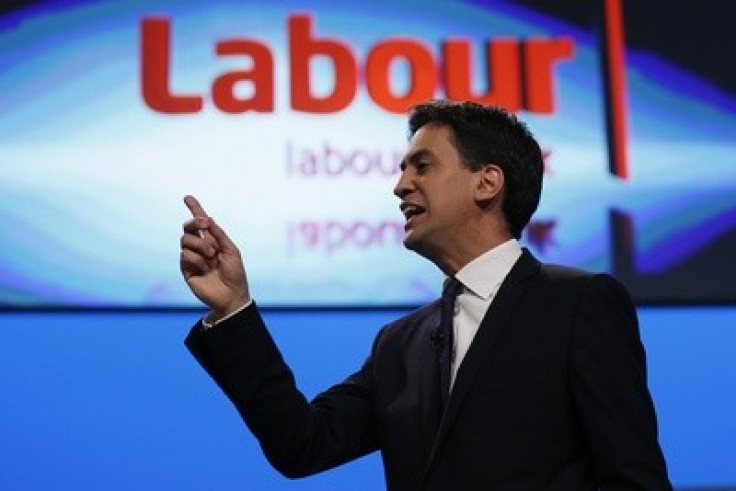Ed Miliband Spells out 'Use it or Lose it' Policy to Boost Housing

There were two policies in Labour leader Ed Miliband's autumn speech which saw him accused by opponents of embracing Marxism. One was freezing energy prices, the other was seizing land under a "use it or lose it" proposal.
While the first dominated the political landscape for months, the second has only now sprung on to the agenda with Miliband setting out details of the proposal to double the number of new homes being built to 200,000 a year by 2020.
It amounts to forcing developers to use land they have bought for house building and have planning permission for, but are refusing to use, awaiting better profit-making opportunities.
And it would make local councils cooperate where neighbouring authorities wanted to create homes on their empty land but are being blocked.
Miliband, who hopes the policy will strike a chord with voters struggling to get onto the housing ladder, said: "councils cannot be allowed to frustrate continually the efforts of other councils to get homes built".
He announced that Stevenage, Oxford, Luton and York had signed up to become the first "right to grow" councils, with an immediate potential to build 40,000 new homes.
He added that developers who had bought land and had planning permission but did not develop it would be ordered to sell it to local councils or charged fees for leaving it empty.
He turned his fire onto the biggest building firms saying: "Profits for our four biggest housing developers are going through the roof.
"They have soared 557% since this government took office - even though homes have been built at their slowest rate witnessed in peacetime for almost a century.
"But there are large amounts of land - enough to build more than a million homes - earmarked for houses which have not been built. Developers need a bank of land with which to work. But sometimes they, and other landowners, are hoarding it.
"We will back home builders. But we will tell land hoarders with sites that have planning permission that they must use it or lose it," he said.
But local government minister Eric Pickles claimed the proposal would mean "tearing up the green belt" and that councils should have the right to decide their local plans themselves.
"Labour's policy shows this is the same old Labour Party. They would allow Labour councils to forcibly rip up green belt protection in neighbouring councils, while their new tax on planning permission would reduce house building and discourage regeneration schemes," he said.
The danger for the Tories is that they might be seen backing the rural, Nimby (not in my back yard) voters who are more likely to be their natural supporters, while Labour is offering hope to those struggling through the tough economic times and seeing no way they can afford their own home.
All sides agree the need to build more houses as a way of both helping families but also giving the economy a boost through development.
Now we have another sharp dividing line between their two approaches.
© Copyright IBTimes 2024. All rights reserved.






